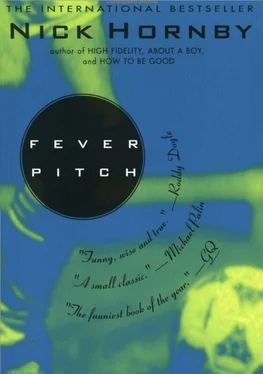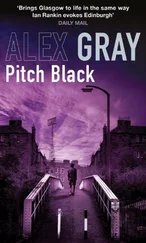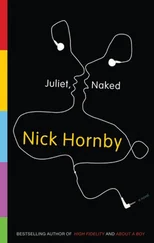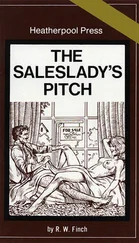So that second Championship win, though less enthralling than the first, was far more satisfying, and more truly indicative of the Arsenal way: the club and the fans closed ranks and overcame, with a magnificently single-minded sense of purpose, almost insurmountable difficulties all of their own making. It was a triumph not only for the team, but for what the team has come to represent, and by extension for what all Arsenal fans have become. The 6th May was our night, and everybody else could go hang.
FRIENDS v OTHER FRIENDS
every Wednesday night
I started playing football seriously—that is to say, I started to care about what I was doing, rather than simply going through the motions to appease a schoolteacher—at the same time as I started watching. There were the games at school with the tennis ball, and the games in the street with a punctured plastic ball, two- or three-a-side; there were the games with my sister in the back garden, games up to ten in which she received a nine-goal start and threatened to go indoors if I scored; there were games with the local aspirant goalkeeper in the nearby playing fields after The Big Match on a Sunday afternoon, where we would re-enact high-scoring League games and I would provide live commentary at the same time. I played five-a-side in the local sports centre before I went to university, and second- or third-team football at college. I played for the staff team when I was teaching in Cambridge, and a mixed game twice a week with friends during the summer, and for the last six or seven years, all the football enthusiasts I know have been gathering on a five-a-side court in West London once a week. So I have been playing for two-thirds of my life, and I would like to play throughout as many of the three or four decades remaining to me as possible.
I’m a striker; or rather, I am not a goalkeeper, defender or midfield player, and not only can I remember without difficulty some of the goals I scored five or ten or fifteen years ago, I still, privately, take great pleasure in doing so, although I am sure that this sort of indulgence will result in my eventual blindness. I’m no good at football, needless to say, although happily that is also true of the friends I play with. We are just good enough to make it worthwhile: every week one of us scores a blinding goal, a scorching right-foot volley or a side-foot into a corner that caps a mazy run through a bewildered opposition defence, and we think about it secretly and guiltily (this is not what grown men should dream about) until the next time. Some of us have no hair on the tops of our heads, although this, we remind each other, has never been a handicap to Ray Wilkins, or that brilliant Sampdoria winger whose name escapes me; many of us are a few pounds overweight; most of us are in our mid-thirties. And even though there is an unspoken agreement that we don’t tackle very hard, a relief for those of us who never could, I have noticed in the last couple of years that I wake up on Thursday mornings almost paralysed by stiffening joints, pulled hamstrings and sore Achilles tendons; my knee is swollen and puffy for the next two days, a legacy of the medial ligament torn in a game ten years ago (the subsequent exploratory operation was the closest I ever got to being a real footballer); whatever pace I had has been eroded by my advancing years and my self-abusive lifestyle. By the end of our sixty minutes I am bright red with exertion, and my Arsenal replica away shirt (old model) and shorts are sopping wet.
This is how close I came to becoming a professional: at college, one or two of the first team (I was in the third team in my final year) played for the Blues, a team consisting of the eleven best players in the whole of the University. To my knowledge, two Blues players in my time went on to play at a professional level. The best one, the university god, a blond striker who seemed to glow with talent in the way stars do, played as sub a few times for Torquay United in the Fourth Division—he may even have scored for them once. Another played for Cambridge City—City, Quentin Crisp’s team, the team with the wonky Match of the Day tape and a crowd of two hundred, not United—as a full-back; we went to see him, and he was way off the pace.
So … if I had ranked number one in my college, as opposed to number twenty-five or thirty, then I might have been able, if I had been lucky, to look bad in a very poor semi-professional team. Sport doesn’t allow you to dream in the way that writing or acting or painting or middle-management does: I knew when I was eleven that I would never play for Arsenal. Eleven is too young to know something as awful as that.
Luckily, it is possible to be a professional footballer without walking on to a League pitch, and without being blessed with a footballer’s physique or pace or stamina or talent. There are the grimaces and gestures—the screwed-up eyes and slumped shoulders when you miss a good chance, the high-fives when you score, the clenched fists and hand-claps when your teammates require encouragement, the open arms and upturned palms indicating your superior positioning and your teammate’s greed, the finger pointing to where you would like a pass delivered, and, after the pass has been delivered just right and you have messed up anyway, the raised hand acknowledging both facts. And sometimes, when you receive the ball with your back to goal and knock a short pass out wide, you know you have done it just right, just so, and that were it not for your paunch (but then, look at Molby) and your lack of hair (Wilkins, that Sampdoria winger—Lombardo?—again), and your lack of height (Hillier, Limpar), were it not for all those peripherals , you would have looked just like Alan Smith.
ARSENAL v ASTON VILLA
11.1.92
There was a part of me that was afraid to write all this down in a book, just as a part of me was afraid to explain to a therapist precisely what it had all come to mean: I was worried that by so doing it would all go, and I’d be left with this great big hole where football used to be. It hasn’t happened, not yet, anyway. What has happened is more disturbing: I have begun to relish the misery that football provides. I am looking forward to more Championships, and days out at Wembley, and last-minute victories over Tottenham at White Hart Lane, of course I am, and when they come I will go as berserk as anyone. I don’t want them yet, though. I want to defer the pleasure. I have been cold and bored and unhappy for so long that when Arsenal are good, I feel slightly but unmistakably disoriented, but I shouldn’t have worried. What goes around, comes around. I started this book in the summer of 1991. Arsenal were the runaway First Division champions, about to enter the European Cup for the first time in exactly twenty years. They had the biggest squad, the brightest prospects, the strongest defence, the deadliest attack, the most astute manager; after their final match of the 90/91 season, in which they crushed poor Coventry 6-1 with four goals in the last twenty-odd minutes, the papers were full of us. “READY TO RULE EUROPE”; “THEY’RE GUNNER RULE FOR FIVE YEARS”; “WE’RE THE BEST EVER”; “CHAMPIONS SET SIGHTS ON THE BIGGEST PRIZE OF ALL”. There had been nothing in my time to compare with this sort of rich optimism. Even Arsenal-haters among my friends were predicting a triumphant and stately procession through to the European Cup Final, as well as another League title for sure, no trouble.
There was a little hiccup at the beginning of the season, but the team had found their form by the time the European Cup started in the middle of September: they crushed the Austrian champions 6-1, a magnificent performance which we believed would scare the rest of the continent rigid. We drew Benfica of Portugal in the next round, and I travelled on one of the two supporters’ club planes to Lisbon, where we hung on for a creditable 1-1 draw in front of eighty thousand Portuguese in the intimidating Stadium of Light. In the return at Highbury, however, we got stuffed, overrun, outplayed, and it was all over, maybe for another twenty years. Then we dropped out of the running for the Championship, after a string of terrible results over Christmas; and then, unbelievably and cataclysmically, we were knocked out of the FA Cup by Wrexham, who had the previous season finished bottom of the Fourth Division as Arsenal finished top of the First.
Читать дальше











